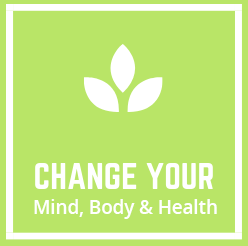Holistic & Integrative Medicine
 As humans have evolved so has our understanding and practice of medicine. Many practices that were once revered as cure-alls for everything from ailments to wounds, such as mercury, or ones to help with mental health issues, such as lobotomies- are now known for causing irreversible harm and permanent damage, with no positive effects on the problems they were being used to cure.
As humans have evolved so has our understanding and practice of medicine. Many practices that were once revered as cure-alls for everything from ailments to wounds, such as mercury, or ones to help with mental health issues, such as lobotomies- are now known for causing irreversible harm and permanent damage, with no positive effects on the problems they were being used to cure.
What many viewed as medical breakthroughs miracles, such as antibiotics to cure simple infections that used to kill people, to narcotic pain killers that can make what was once debilitating pain manageable, are now threatening human health in the United States. New antibiotic resistant bacterias are continuing to crop up, and opioid addiction is reaching epidemic proportions in many parts of the United States.
These and the many other problems medicine has encountered, have led to newer ways of thinking about health.
 A way to define Holistic Health is that it considers a person as a whole and how they interact with their environment, rather than focusing on illness or specific parts of the body. Many holistic health practitioners place an emphasis on the interconnection of the body, mind, and spirit.
A way to define Holistic Health is that it considers a person as a whole and how they interact with their environment, rather than focusing on illness or specific parts of the body. Many holistic health practitioners place an emphasis on the interconnection of the body, mind, and spirit.
A way to define Integrative Health is that it is an approach to health care that tries to integrate the best of Western scientific medicine while bringing to it, a wider understanding of illness, healing and being healthy and well. It is patient centered care that treats a person as a whole, including examining a full range of their physical, emotional, mental, social, spiritual, and environmental influences that may be affecting their health, while addressing both immediate needs as well as long-term ones.
Many people use the terms integrative health and holistic health or medicine interchangeably, and some people combine the two as one term, holistic integrative health or holistic integrative medicine (HIM).
Changing Healthy
More now than ever before, Americans are researching and investing both time and money into ways to live longer and healthier lives compared to the generations before them- but with every generation, what is considered “healthy” changes anywhere from slightly to dramatically. Many different ways for people to be “healthier” from less than a decade ago on back, are no longer considered to be healthy.
Good medicine, like any information-based technology, changes with new discoveries, research, and experimentation. A backlash of modern medicine is the over-division and specialization of disciplines and the fragmentation of medical knowledge. Holistic integrative health is a natural adjustment to this problem and a necessary direction for the future development of medicine. Holistic integrative medicine regards the body as a holistic entity and organically integrates the most advanced knowledge and theories from different fields of medicine, and applies them in effective practices that are adjusted based on social, environmental and psychological conditions.
Holistic integrative medicine and health is a necessary evolution in changing the way we think of being healthy and how to live the healthiest lives we can.
